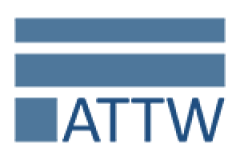ATTW 2019 Research Methods Workshop
Using Keystroke Logging in Writing Research
Luuk Van Waes & Mariëlle Leijten – University of Antwerp, Belgium
Keystroke logging allows researchers to record writers’ unfolding process while composing a text. These recordings provide an excellent source of information about how writers have organized their writing process. Keystroke logging generates fine grained data allowing researchers to explore and compare writers’ pausing and online revision behavior as well as their interaction with sources during text composition.
In this workshop, participants will have the opportunity to (a) explore the possibilities and limitations of keystroke logging techniques for collecting data on writing processes; (b) discuss good practices to collect keystroke data in writing process studies; (c) examine keystroke data and prepare them for further analysis; (d) explore qualitative and quantitative options for presenting keystroke data; and (e) join an international network of enthusiastic writing process researchers.
The workshop will have three parts:
– an introduction to the use of keystroke logging in writing studies;
– thematized hands-on session analyzing writing process data using pause, revision, fluency and source analysis;
– discussion of possibilities of using keystroke logging data in participants’ own context.
In preparation for the workshop, participants will be asked to install the Windows-based Inputlog on a laptop to be brought to the workshop and read two articles that will be sent prior to the workshop. Workshops participants are encouraged to explore the software on beforehand and are invited to collect sample data relevant to their own research.
Note: Participants working on the MAC OS platform should explore options for running Windows-based software (such as Boot Camp or other virtual machine software like VMWare or Virtual Box; see FAQ on the Inputlog website given below) or will be invited to collaborate with fellow participants.
website: http://www.inputlog.net
